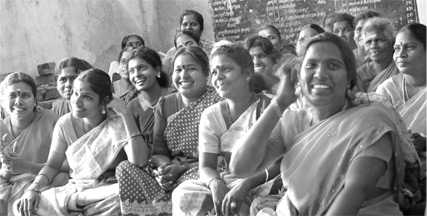More decent work for women, key to Asia's economic progress -
Studies
Manila, Philippines: Giving women in Asia more opportunities to
secure decent, productive work will have major social and economic
spinoffs for the region and is essential for inclusive growth, according
to a series of new studies from the Asian Development Bank (ADB).
"Attitudes towards providing decent work for men and women,
irrespective of their background, continue to be ambiguous, complex and
controversial," said Senior Social Development Specialist in ADB's
Regional and Sustainable Development Department, Imrana Jalal. "However,
there is ample evidence to show that providing equitable employment
opportunities, remuneration and treatment of the sexes is important for
social justice and smart economics," she said.
 The five interlinked publications analyse and make suggestions for
improving gender equality in the labour markets in Cambodia, Kazakhstan
and the Philippines. They also examine global best practices in law and
social and economic policies, which have helped encourage greater
equality in the workforce. The five interlinked publications analyse and make suggestions for
improving gender equality in the labour markets in Cambodia, Kazakhstan
and the Philippines. They also examine global best practices in law and
social and economic policies, which have helped encourage greater
equality in the workforce.
The economies of Cambodia, Kazakhstan and the Philippines have grown
strongly in recent years but this has not translated into real
improvement in gender equality, with the proportion of women's annual
earnings to men's estimated at less than 71%.
Substantial gaps still exist between men and women across a number of
metrics including labour force participation rates, unpaid domestic and
care work, and access to decent work and social protection resources
such as pension plans.
In Kazakhstan, the gender wage gap is substantial, while in the
Philippines the low labour force participation rate of women, combined
with the high national population, represents a substantial underuse of
women's labour in the paid workforce.
In Cambodia, there are pronounced quantitative differences between
men and women in terms of literacy and years of schooling.
The three-country study highlights some positive steps being taken,
including the development of employment targets, but notes that none of
the economies recognise gender equality as a specific macroeconomic goal
in their national development plans.
To narrow the gender gap, countries need to increase the involvement
of women in technical and vocational education and training programs,
including non-traditional areas.
Governments also need to find ways of providing more social
protection for workers in the informal sector, which includes large
numbers of women. Stronger laws that lock in the concept of equal pay
for work of equal value are needed, particularly for Kazakhstan and
Cambodia, and simple, effective mechanisms should be put in place to
allow women to seek redress for discrimination and sexual harassment in
the workplace.
More gender mainstreaming and gender-specific programs and targets,
including the development of sex-disaggregated data, are required to
tackle the barriers women face in finding productive, decent jobs and
getting higher paid management positions.
Policymakers also need to take steps to provide more opportunities
for women in specific sectors where they lack access to quality jobs. In
Kazakhstan, for example, mining and petroleum are vital to the economy
but women are largely absent from high paying jobs in the two sectors.
The report identifies a number of fast growing sectors where women
should be encouraged to play a greater role, including the booming
business process outsourcing sector, tourism, light industry and
entrepreneurship. |

